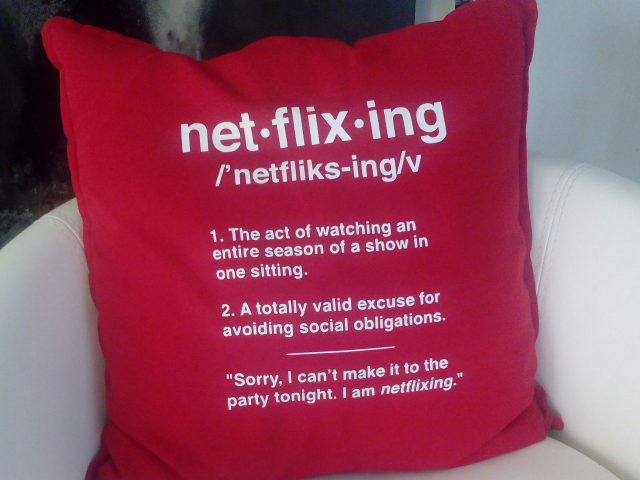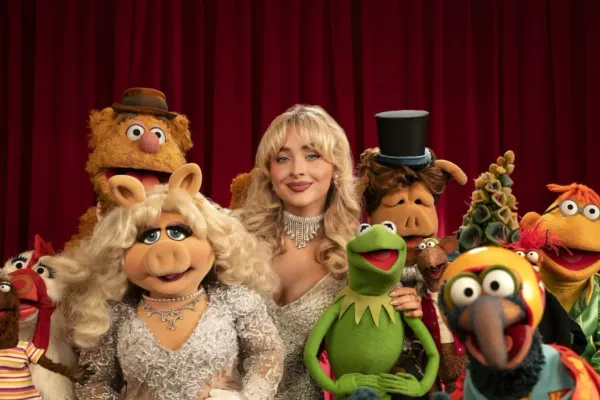Episodes: Friday mailbag (June 2)

Hey, folks! I haven't done one of these in a couple of weeks for a variety of reasons, so the questions have been piling up. I'll try to get through at least a few of them tonight, even though I'm starting very late.
K writes:
Lately I have been in a desert of creativity. I'm struggling to find stories that interest me, and having an even harder time finding tension that makes them compelling. It's not writer's block per se, so much as a slump. You are very prolific! Has this happened to you? How do you get out of it? Don't say it just takes time.
It just takes time! I'm sort of kidding, because I'm going to give you some suggestions, but the only foolproof one is to wait it out. These things come in ebbs and flows. The longer that you write, the more you can rely on certain muscles to carry you through, but when you are trying to write stuff you're proud of, you can never predict when the drought will strike. (I wrote a little about this, which I like to call "focus block," here.)
How I will sometimes try to beat focus block at its own game is to ramp up my intake, and ramp up my intake of things I don't normally check out. I've been trying to read a lot more novels in 2017, and while I'm not going to achieve my goal of reading one novel per week (which was way too ambitious), the simple act of taking in a new novel every two weeks or so is helping stretch my brains in directions it didn't always want to go when I was filling it with mostly TV and movies. Similarly, I've found some video games that offer me the kind of relaxing, meditative state that lets me flush out some of the toxins that come from engaging daily with the great godless beast internet.
So if you watch a lot of TV, watch some movies. Or if you primarily watch a certain kind of thing, watch the exact opposite, even if you think you'll hate it. (Watching something you think you'll hate but have a tiny little inkling you might enjoy is a good way to stress test your critical faculties.) Or go outside. Or see a symphony or a play or something. Or go to a museum. Above all, try to put the internet out of your mind, because even at its best, it sings sweet songs of focus block.
Or you can write something that has nothing to do with your journalism. Doesn't matter if it's good! Nobody has to see your poems, or your short stories. Get something out there that is just for you.
The other thing you can do is take on a lot of tasks that don't have anything to do with writing. I used to get my best ideas washing dishes (now I have a dishwasher, curses). Some people get their best ideas as they're drifting off to sleep. Others do when they're walking in the park. ANy or all of these strategies can work! The goal is to distract your focus block long enough to let the writer part of your brain get around it. If you have a job where you can take a couple of days just to yourself, to assault your focus block with a whole barrel of tricks (a movie here! a museum there! swimming 50 laps after that!), do that. If you don't, chip away at it a little bit at a time.
Or just wait it out. You can always wait it out.
Billy writes:
Do you think a Trump biopic would work better in a movie or as a TV show? Bonus Question: Which network would be best equipped to handle a TV series about him?
I'm choosing this question because I was just thinking today about how the fight over the "Muslim ban" (which is supposedly not that, but c'mon) has the bones of a good movie to it, one you could tell from a variety of points of view. My thought was sort of a Steven Soderbergh type thing about that first weekend when the ban was causing chaos and lawyers were flocking to the nation's airports to try to help those stuck in customs. Set it at an airport over 24 hours, and I think it could be something.
Of course, talking about this in the sense of "This might make a good movie!" when it's still very much a going concern (that the administration is trying to force the Supreme Court to let move forward before the high court actually rules on it!) is more than a little glib. But I think the way to talk about Trump almost certainly has to be in film, because the language of TV would almost certainly make him too likable!
This feels weird to me, because I've long felt Nixon would make for a very compelling TV character. But I think that's because Nixon has a lot of the classic traits of an antihero. His paranoia is constantly warring with his intelligence, and both are infected with a kind of dark certainty that twists toward evil from time to time. (I think Nixon is a fascinating guy.) Those are layers you could gradually unpeel in a miniseries, and I continue to believe that FX should greenlight Rick Perlstein's Nixonland as a miniseries directed by Steven Spielberg. (Spielberg in full Americana mode taking on the rise of Nixon would be *kisses fingers*.)
But Trump doesn't really have those sorts of antihero layers. You could play him as a comedic figure -- the bumbling oaf -- or a tragic one -- the guy who wants to do big things but is often too incompetent to pull them off. And if you put either of those characters on TV, he's going to come off as fundamentally tragic. Now, in 100 years, that's probably not such a big deal. We'll all be dead then, and Trump's legacy will be solidifying. But in 10 years, even if Trump is voted out in 2020 or impeached or something, he'll still be this hot skillet you won't want to touch without maximum care. The temptation to make a preachy liberal harangue or a conservative leaning chest-thump will be too potent.
This is why so many of the best Trump stories barely involve Trump at all. Whatever the outcome of the Russia investigation, there are the bones of a great movie there -- but you could easily tell that story with Trump as a shadowy figure on the edges of the story. I think you could probably make some sort of "Ivanka and Jared" movie about the banality of, uh, basically everything, but, again, it would almost have to be a movie. Trump, I think, is not a particularly interesting character because he strikes me as very "what you see is what you get." But the stories surrounding him are good ones.
Just, y'know, maybe in a few years or so.
Victoria refers back to an older newsletter to ask this question:
When you say cultural gatekeepers are relying on algorithms, are you referring to places like Netflix, Hulu, Amazon being our cultural gatekeepers, recommending things to us based on data?
Yes, more or less. (Victoria goes on to ask about a bunch of things, and I'll try to address some of them here, but I wanted to cut the question down to its core for the newsletter.)
This is one of those things that I think I have slightly more in common with Gen X than with the Millennials. (I was born at an annoying time, which means I straddle the two generations and have certain things in common with the former and certain things in common with the latter, and generational theory is bullshit anyway, because when people are saying, "Millennials are the worst generation ever!" what they are saying is, "Many millennials are in their 20s, and Jesus, I was in my 20s once, and what a terrible person I was!") I used to have weird arguments with a coworker at Vox about how I still preferred the personal recommendation of a friend or a video store clerk or a bookstore worker to the Netflix algorithm, and she suggested to me that this was part of the white male cultural hegemony, which maybe! A lot of those jobs were taken up by bored white dudes with very same-y taste, and the computer theoretically knows you better than you do.
But I just finished the novel Version Control by Dexter Palmer (reading!), and in that book, he talks about how the natural trajectory of humanity right now is that we are slowly giving up more and more of what's human about us to an ocean of data, because it makes our lives slightly easier. Palmer doesn't suggest this is good or bad, just that there is more to us than our data, while corporations would dearly love for us to conclude otherwise.
Late in the book, Palmer writes: "The Internet does that to people. They can't squeeze every little bit of their personalities through those thin little cables that connect computers together, so they end up acting out their authenticity to try to let strangers know they're real," and it struck me as one of the truest things I've read in a while. Our internet selves are increasingly detached from whatever we think of as our "real selves," and in the case of data and algorithms, that means that we're ceding more of our taste over to what our data thinks we should like.
And to be clear: that data is usually right! If I go with a random Netflix recommendation, it will usually be pretty good. If I just wrote a program to buy me random things Amazon thinks I would like, it would probably be pretty close to accurate, too.
But I think back to when I was in the seventh grade, and my teacher told me, "You are going to love It's a Wonderful Life," even though I had already seen it and decided I hated it. She knew, somehow, that I had crossed some invisible Rubicon that was going to make that movie my favorite of all time. And I had, and it was. If I had already ranked it one star on Netflix, would Netflix have figured that out, too? Most of the movies and TV shows that have changed my life have been recommended by friends, critics, or people who work around them every day and can recommend crazy new things.
Don't get me wrong: I'm aware that the mere existence of algorithms isn't going to suddenly supplant, say, your mom pushing a movie on you. But I do think we haven't thought enough about what ceding as much of our taste over to those algorithms as we have will do to us. This could just be nostalgia for a misspent youth in video stores talking, but I think there's something to the idea that the movies we need are often bolts of lightning. And you're not going to get those from an algorithm. That same co-worker? I later recommended Clouds of Sils Maria -- a movie I know the algorithm wouldn't have come up with in a million years -- to her, and it quickly became one of her all-time favorites. There has to be a balance somewhere.
(I am a hypocrite though. I just let the Spotify computer tell me what to listen to.)
--
Episodes is published three-ish times per week, and more if I feel like it. It is mostly about television, except when it's not. Suggest topics for future installments via email or on Twitter. Read more of my work at Vox




